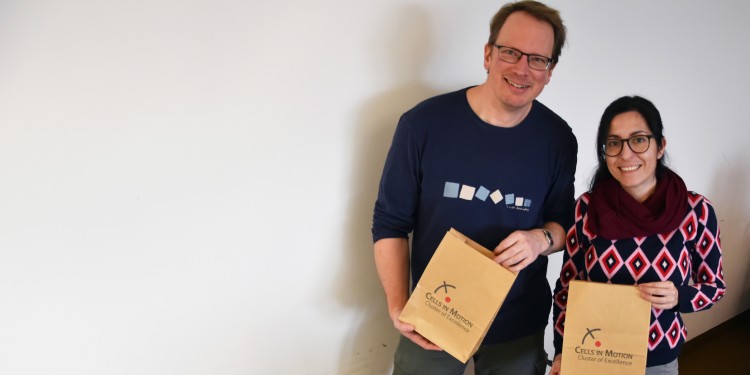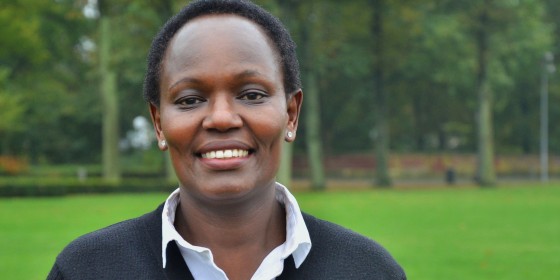
"Our PhD students and postdocs should get to know one another"
Helping junior researchers to look beyond their own four walls in preparation for an academic career is something that the University of Münster does not only in a decentralised way – in individual faculties, with a wide range of qualification opportunities – but also across faculty borders, with numerous centralised offers of support. In this connection, the culture among PhD students and postdocs is becoming ever more important. Interdisciplinary exchanges of thoughts and ideas and mutual networking are important not only for research work but also for the personal development of those involved. Here are just two examples of many of the opportunities on offer to junior researchers at the University of Münster:
The brownbag lunch at the "Cells in Motion" Cluster of Excellence
Thursday lunchtimes, there are always a lot of people in the conference room on the fifth floor of the East Tower at Münster University Hospital. This is where junior researchers meet between 12 and one o’clock for a so-called "brownbag lunch", organised by the "Cells in Motion" (CiM) Cluster of Excellence. Before the PhD students and the postdocs take their seats, they walk along the buffet and help themselves to the sandwiches, cakes and fruit on offer free of charge. While the speakers present their projects – in English, and in a relaxed and friendly atmosphere – on topics relating to cell dynamics and biomedical imaging, the visitors listen with interest as they eat their lunches. CiM has been organising its brownbag lunch events since 2013, and, with over 170 talks and almost 7,000 people attending so far, they have long since become an established feature. From the beginning, the lunches have been organised by Dr. Sebastian Rumpf and Dr. Milos Galic, who each lead a team of junior researchers, and Prof. Timo Betz, who also started as such a leader at the CiM Cluster of Excellence. Dr. Noelia Alonso Gonzalez and Dr. Maria Bohnert joined the team in 2018. "The idea is for our PhD students and postdocs to get to know one another, present their research projects and make contacts", says Timo Betz. "There never used to be a platform for this. And we also think that presenting a project outside your own working environment is important." The young researchers come from a variety of faculties: Medicine, Biology, Chemistry, Pharmacy, Physics, Mathematics and Computer Science. In addition to the presentation of projects, information and tips on academic careers and on funding opportunities are also provided. The brown (lunch) bag symbolises the lunchtime meetings. The Graduate School of Politics at the Institute of Political Science also organises a regular brownbag lunch.
Welcoming the new postdocs to Münster University

